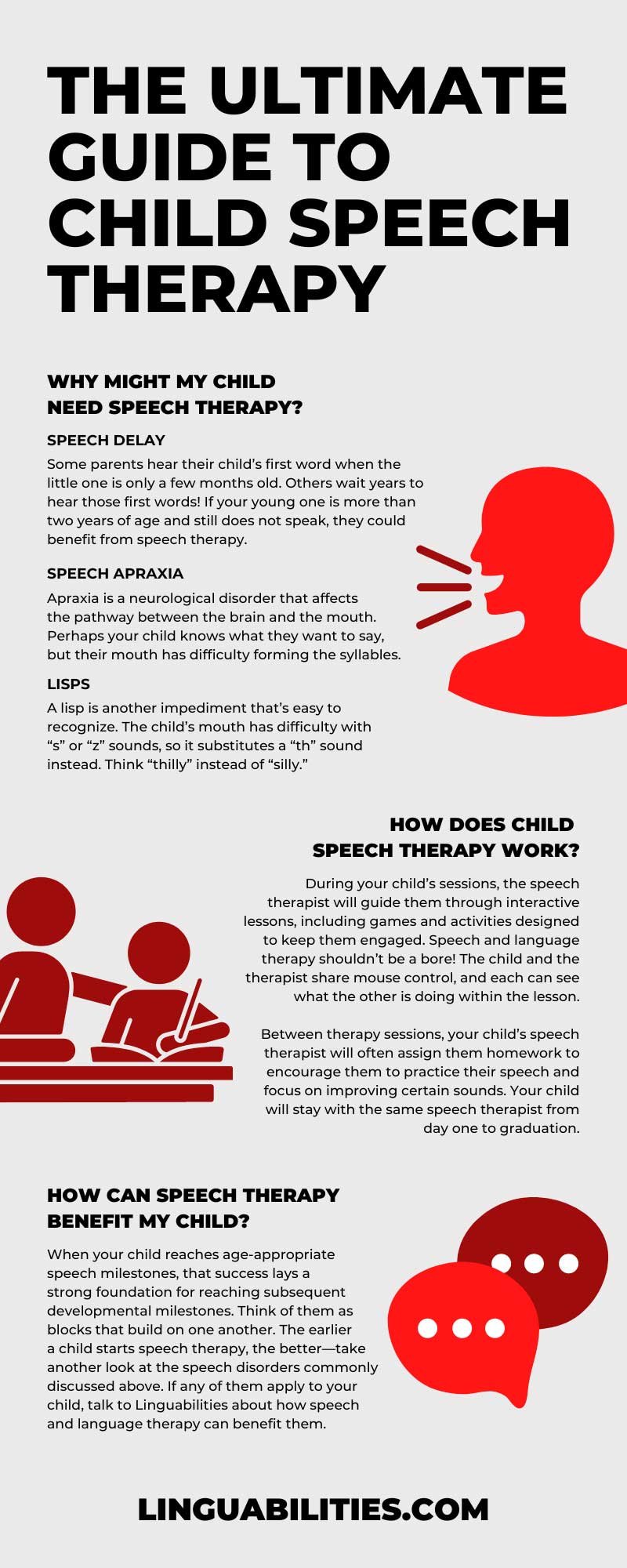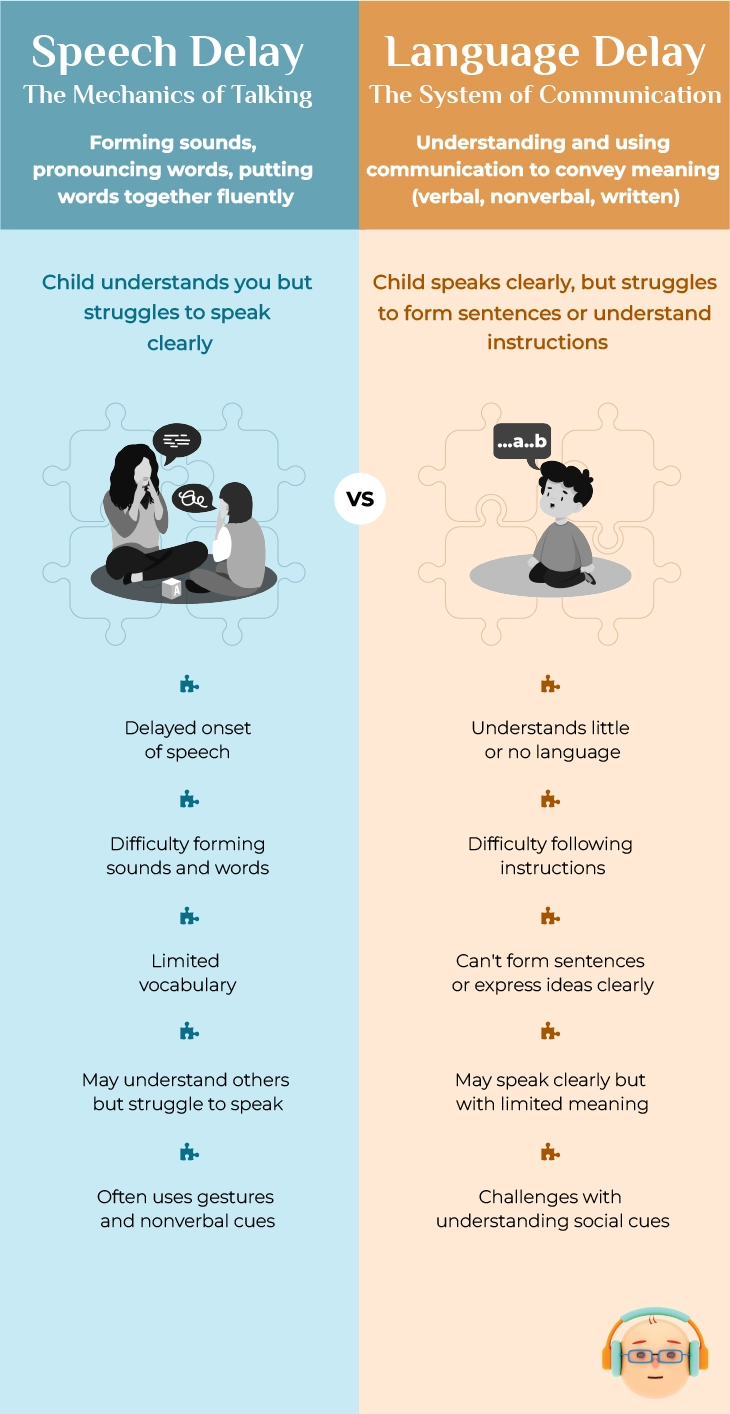Imagine the joy of hearing your child say “mama” or “dada” for the first time. It’s a moment every parent eagerly anticipates.
But what happens when those words don’t come when expected? If you’re worried about your child’s speech delay, you’re not alone. Many parents share your concerns and wonder, “Can a speech delay be fixed? ” The good news is, there’s hope, and you’re about to discover exactly what steps you can take.
We’ll delve into practical solutions and expert insights to help your child find their voice. By the end, you’ll feel empowered and ready to support your child’s speech journey. Let’s explore the possibilities together.
Causes Of Speech Delay
Understanding the causes of speech delay can guide effective interventions. Speech delay can stem from various factors. Some relate to a child’s development, others to their environment. Medical conditions can also play a significant role.
Developmental Factors
Children develop speech at their own pace. Some may take longer to speak. This could be due to slower development of speech-related skills. Genetic factors might also influence speech development. Kids learn through imitation and practice. If a child lacks these opportunities, speech may delay.
Environmental Influences
A child’s environment impacts their speech. Limited interaction with family or peers can delay speech. Lack of exposure to language-rich settings can hinder progress. Constant exposure to screens might limit verbal interaction. Thus, reducing opportunities for language practice.
Medical Conditions
Certain medical issues can cause speech delay. Hearing loss is a common factor. If a child can’t hear well, they struggle to learn speech. Autism spectrum disorders often involve speech delays. Other neurological conditions might affect speech development too. Identifying and addressing these conditions is crucial.

Credit: www.linguabilities.com
Signs Of Speech Delay
Recognizing speech delay early can help in addressing concerns. Parents often worry when their child isn’t speaking like peers. Understanding the signs can ease fears and guide actions. Here, we’ll explore age-appropriate milestones and common symptoms to watch for.
Age-appropriate Milestones
Children typically reach speech milestones at certain ages. By 12 months, many babble and use simple words like “mama” or “dada.” At 18 months, a child might know around 20 words. By age two, most kids form two-word phrases like “more juice.” If milestones are missed, it might signal a speech delay.
Common Symptoms
Several symptoms indicate a speech delay. Limited vocabulary for their age is a key sign. Difficulty forming sentences or pronouncing words can also occur. Sometimes, kids struggle with understanding simple instructions. Pay attention to these signs for early intervention.
Expert Assessments
When tackling speech delays, expert assessments play a pivotal role in understanding the unique challenges your child faces. A thorough evaluation not only identifies the root causes but also lays the groundwork for effective intervention strategies. Have you ever wondered what professionals look for during these assessments?
Role Of Speech-language Pathologists
Speech-Language Pathologists (SLPs) are your allies in this journey. These experts specialize in diagnosing and treating communication disorders. Their goal is to understand the intricacies of your child’s speech patterns.
SLPs don’t just listen to words. They observe how your child interacts, listens, and responds. This holistic approach ensures a comprehensive understanding of your child’s needs. Imagine the relief of having someone who really ‘gets’ your child’s struggles.
Building rapport with your child is crucial. A comfortable environment encourages your child to speak freely, offering more accurate insights into their speech abilities. Have you noticed how your child opens up more when they feel at ease?
Diagnostic Tools
Diagnostic tools are essential in pinpointing specific speech issues. These tools range from standardized tests to observational assessments. They help SLPs gather detailed information about your child’s speech and language skills.
Standardized tests offer measurable benchmarks. They compare your child’s abilities with typical developmental milestones. This comparison highlights areas needing attention. Imagine having a clear roadmap for your child’s speech development journey.
Observational assessments are equally important. They involve watching your child in natural settings, providing insights that tests alone might miss. Does your child struggle more in noisy environments or during group activities? These observations can be eye-opening.
Expert assessments combine these tools, offering a well-rounded view of your child’s speech delay. They guide the creation of personalized therapy plans tailored to your child’s unique needs. Have you considered how empowering it is to have a plan specifically designed for your child?
Understanding speech delays through expert assessments is a proactive step towards effective intervention. You have the power to support your child’s speech development journey, armed with insights from skilled professionals.

Credit: www.tiktok.com
Therapeutic Approaches
Speech delays can be concerning for parents and caregivers. Understanding available therapeutic approaches offers hope. These approaches aim to address speech delays effectively. Early intervention often leads to better outcomes. Let’s explore the different methods used in therapy.
Speech Therapy Techniques
Speech therapy offers tailored techniques for each child. Therapists use play-based methods to engage children. Repetition and practice help reinforce speech skills. Visual aids can support learning and comprehension. Activities may include storytelling or singing. These methods encourage children to express themselves. Regular sessions build confidence in communication.
Parental Involvement
Parents play a vital role in speech therapy. Active involvement enhances a child’s progress. At home, practice activities suggested by therapists. Reading together boosts vocabulary and language skills. Encourage your child to talk about their day. Listen patiently to their attempts to speak. Celebrate small achievements to motivate further efforts. Your support makes a significant difference.
Educational Interventions
Educational interventions can play a pivotal role in addressing speech delays. These interventions, tailored to support individual needs, often provide a structured environment where children can thrive. By integrating various programs and resources, children can gradually improve their communication skills, fostering confidence in their interactions.
Early Childhood Programs
Early childhood programs can be a game-changer for children with speech delays. They offer a nurturing atmosphere where young minds can explore language through play and interaction. You might notice your child blossoming as they join activities designed to boost their vocabulary and pronunciation.
These programs often include group activities that encourage communication and social skills. Your child might find joy in storytelling sessions, where they can practice forming sentences and expressing ideas. It’s heartwarming to see them gradually overcome the initial hesitation to speak.
Special Education Resources
Special education resources provide personalized support for children facing speech challenges. These resources often include speech therapists who tailor sessions to target specific speech issues. Imagine your child working with a therapist who makes learning fun through engaging exercises like sound games and word repetition.
Additionally, these resources might offer tools such as visual aids and communication boards. These can help your child express themselves more clearly, even when they struggle to find the right words. Have you ever seen your child light up when they successfully communicate a thought using these aids?
Consider the impact of collaborative strategies involving parents and educators. Regular feedback and updates can help you better understand your child’s progress and areas needing attention. What if you could contribute to shaping a supportive learning environment at home based on these insights?
Home Strategies For Improvement
Addressing a speech delay can be challenging for parents. Yet, with effective home strategies, significant improvements are possible. Creating a supportive environment for speech development is essential. This includes engaging activities and a language-rich atmosphere. Let’s explore practical methods to enhance speech abilities at home.
Interactive Activities
Interactive activities play a vital role in speech improvement. Games like “Simon Says” encourage listening and speaking. Simple board games can also boost communication skills. Playing with toys that require interaction sparks conversation. Storytelling with dolls or action figures can enhance vocabulary. Encourage your child to describe their actions during playtime.
Singing together is another powerful tool. Nursery rhymes and songs introduce rhythm and new words. Clapping or dancing to music makes learning fun and engaging. Keep activities short to maintain interest and focus. Consistent practice helps build confidence in speaking.
Language-rich Environment
Creating a language-rich environment supports speech development. Surround your child with words and sounds. Read books together every day. Choose stories with repetitive phrases and rhymes. Discuss the pictures and predict what happens next. Point out words and letters during reading.
Talk to your child throughout the day. Describe daily activities and objects around them. Use varied vocabulary to expand their word bank. Ask open-ended questions to encourage conversation. Listen patiently and respond to their attempts to communicate. Praise their efforts, even if words aren’t clear.
Label items in your home with their names. Use flashcards for colors, shapes, and everyday objects. Turn ordinary moments into learning opportunities. Cooking, shopping, and cleaning can all involve language practice. Consistent exposure to language helps overcome speech delays.
Long-term Outcomes
Understanding the long-term outcomes of speech delay is important for parents. Speech delay can impact a child’s development. Early intervention often leads to positive results. Many children with speech delays catch up with their peers. Consistent support plays a key role in their progress.
Potential For Catch-up
Many children with speech delays have the potential to catch up. With the right help, they can develop strong communication skills. Speech therapy offers targeted support. Children often learn at their own pace. Encouraging communication at home also helps. Reading aloud and engaging in conversations can be beneficial.
Monitoring Progress
Tracking a child’s progress is crucial. Regular assessments can identify improvements. Parents and therapists work together to set goals. Consistent monitoring helps adjust strategies as needed. Celebrating small milestones keeps children motivated. It also reassures parents about their child’s growth.

Credit: autism.fratnow.com
Expert Opinions And Advice
Experts provide valuable insights on speech delays in children. Their opinions guide parents in addressing these challenges. Understanding professional advice helps in making informed decisions. This section delves into expert perspectives, debunking myths and offering practical solutions.
Common Misconceptions
Many believe speech delays resolve without help. This is not always true. Early intervention is often crucial. Another misconception is that speech delays mean lower intelligence. This is incorrect. Intelligence and speech skills are not directly linked. Some think bilingualism causes speech delays. Experts disagree. Bilingual children usually catch up in speech development.
Professional Recommendations
Speech therapists recommend early evaluation for speech concerns. They emphasize the importance of regular speech practice at home. Reading to children daily boosts vocabulary and comprehension. Engaging in conversations with children encourages communication. Interactive play supports language development. Parents should consult professionals for personalized advice. Tailored strategies help address unique speech challenges.
Frequently Asked Questions
What Age Do Speech Delays Resolve?
Speech delays often resolve by age 5. Early intervention can help improve outcomes. Each child’s development varies. Consult a pediatrician if concerned about your child’s speech progress.
Can A Child With Speech Delays Catch Up?
Children with speech delays can often catch up with early intervention and therapy. Parents should consult a specialist. Regular practice and support can enhance progress. Each child’s development varies, so patience and encouragement are crucial. Early diagnosis significantly improves chances of catching up in communication skills.
What Can Help With Speech Delay?
Speech therapy benefits children with speech delay. Engaging in interactive play and reading enhances language skills. Encourage social interactions with peers. Consistent practice with speech exercises is crucial. Ensure a nurturing environment at home. Consult professionals for personalized guidance. Early intervention significantly improves outcomes.
Can Speech Delay Be Cured?
Speech delay can often be improved with early intervention and therapy. Consult a specialist for guidance.
Conclusion
Speech delays can often be improved with early intervention. Recognizing the signs is crucial. Speech therapy offers effective techniques to help children communicate better. Each child progresses at their own pace. Parents should stay patient and supportive. Consistent practice at home can enhance speech development.
Engage your child in conversations and reading. Professional guidance ensures targeted strategies for improvement. Celebrate small victories to keep motivation high. Stay hopeful and proactive in addressing speech challenges. Early action makes a positive difference in your child’s communication skills.
Always consult a specialist for personalized advice and support.

